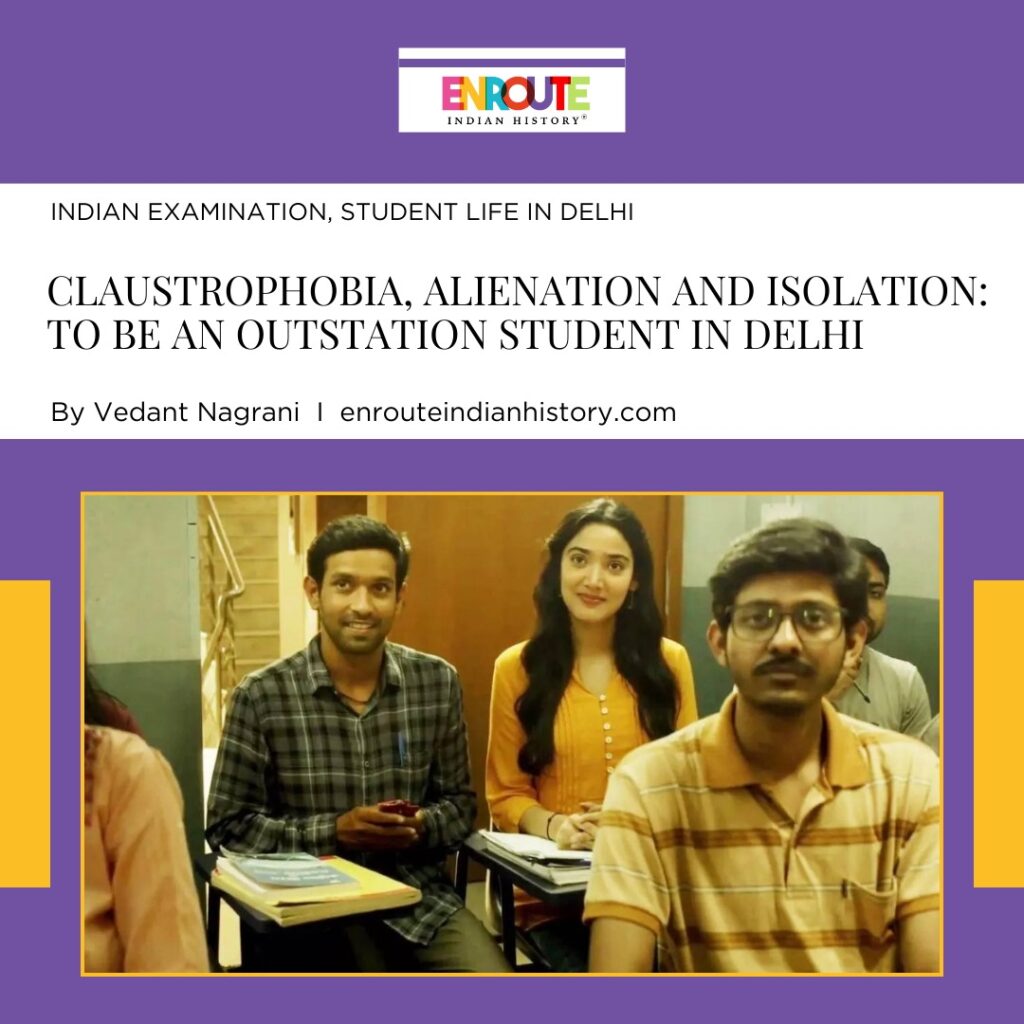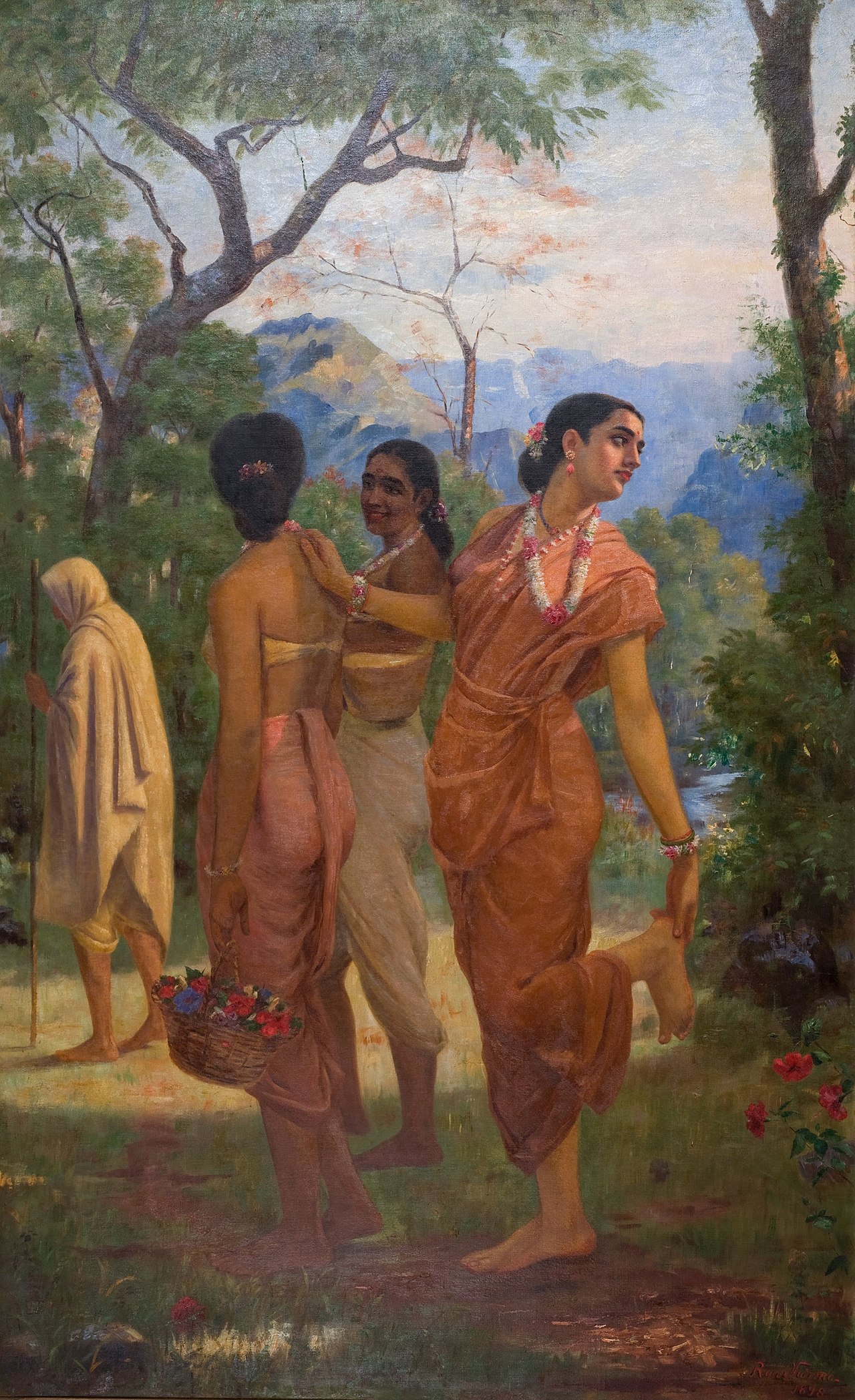Claustrophobia, Alienation And Isolation: To Be An Outstation Student In Delhi
- enrouteI
- March 1, 2024

Every year lakhs of students from all parts of the country and other nations visit the capital city of India, New Delhi, and the Delhi-NCR region to pursue their undergraduate, postgraduate, and PhD studies in prestigious central, state, and private universities. However, the outstation students not only struggle with academic pressure but also undergo severe struggles in other domains concerning their mental, social, emotional, and physical health. While acknowledging the social capital and privilege of being an outstation student in Delhi, this article explores the multiple issues outstation students face in Delhi in terms of claustrophobia-inducing accommodations, alienating circumstances, and a constant sense of isolation using the author’s personal experience as an outstation student. It further attempts to provide certain possible solutions to these problems.
The University of Delhi is not just another university in India. It is a dream for lakhs of students both within and outside India. While everyone paints a rather beautiful and glorified image of the university with its historical colleges, very few people acknowledge that the grass is not so green on the other side. With its cut-throat internship culture and highly toxic society culture, the university becomes a very tough space to survive in, let alone thrive and make a successful career. As if the university isn’t a tough challenge in itself, the city of Delhi adds to the trouble.
Though deemed beautiful by many and justifiably so, the city is both a nightmare and a dream. The opportunities that Delhi provides to its inhabitants are unparalleled in comparison to any other city. However, on several days, these very opportunities become nightmares as the very dream of “making it big” in the city seems like an almost unachievable possibility. This subliminal experience is not uncommon for outstation students who hail from small towns. The very experience of being a part of an extremely populated crowd in the streets of Chandni Chowk, changing the metro line at Rajiv Chowk and walking in the streets of the North Campus makes one feel extremely insignificant and alone. Outstation students tend to have a very different relationship with Delhi as their relationship with spaces is very different than the Delhiwallahs.
The city presents a paradox to them as it becomes the space the students turn to as a refuge from their extremely small and claustrophobia-inducing accommodations and at the same time, it does not provide a warm feeling of a home as it tends to become a rather hostile space, especially for students from the marginalised and oppressed communities. In such circumstances, many students somehow manage to develop an affection for the city while many also end up detesting it.
The transition from a home to a small and cramped-up room does not merely come with the issue of physical space but also personal space. Several outstation students share rooms that can barely accommodate a single person. This not only leads to a struggle to accommodate personal belongings of students in such a small space but also takes away the personal space of students as they struggle to express their emotions in situations such as anxiety attacks, panic attacks and emotional breakdowns as they feel uncomfortable crying in front of another person in such a small space. In several cases, the rooms are constructed in such a manner that a person cannot even speak on calls without their roommates overhearing the entire conversation. All these challenges heighten the discomfort of living in such spaces and lead to claustrophobia that makes the very idea of returning to these accommodations from college,highly unpleasant.
Being an oustation student does not merely change the relationship of students with their spaces as it also leads to a sense of alienation with one’s surroundings. While one expects a feeling of belonging associated with their college, one often feels estranged from the space due to various reasons. One of the most significant factors among these for many students could be a lack of an immediate presence of a support system in the form of family members, friends and professors.
Since last year, several universities including the University of Delhi have displaced several ad-hoc professors serving in these institutions for decades, if not several years. Not only have these displacements significantly impacted the socio-economic conditions of the displaced professors but also caused a sense of alienation in students for whom these professors were one of the very few sources of support and encouragement in an alien city. As Marx had argued, the feeling of alienation is primarily caused by a lack of identification with the work one undertakes. In the case of university students, the internships, college society contributions and other work commitments often overburden them and lead to a painstakingly intense feeling of alienation and an outburst of existential questions that often does not have answers to. In many cases, the alienation can be observed in small instances such as a lack of communication amongst two roommates for hours due to endless work commitments and deadlines.
Not only does the highly competitive work culture at DU and the larger neoliberal structure alienate students from their surroundings and severe solidarity among them but it also isolates these students. In several cases, the society culture at DU and the rather unrealistic expectations harboured by these societies coupled with other challenges in academic spaces leads to a self-isolation in students that proves to be harmful for their emotional and mental health. While alienation involuntarily leads to a rupture in their relationship with their peers, spaces and families, self-isolation is often a response to the alienation as one struggles to find meaning in work, relationships and student life and as a consequence, finds refuge in withdrawing oneself from them.
While Delhi and the universities of Delhi provide golden opportunities to students, the rising unemployment rates and subsequently the highly competitive work culture is counter-productive for university students, especially outstation students as it further breeds alienation and isolation of the students. The work culture in university societies need to be more accomodative and more empathetic to outstation students. Further, as many of the issues faced by outstation students are similar, creation of support systems for these students would prove to be very beneficial.
- May 15, 2024
- 6 Min Read

























